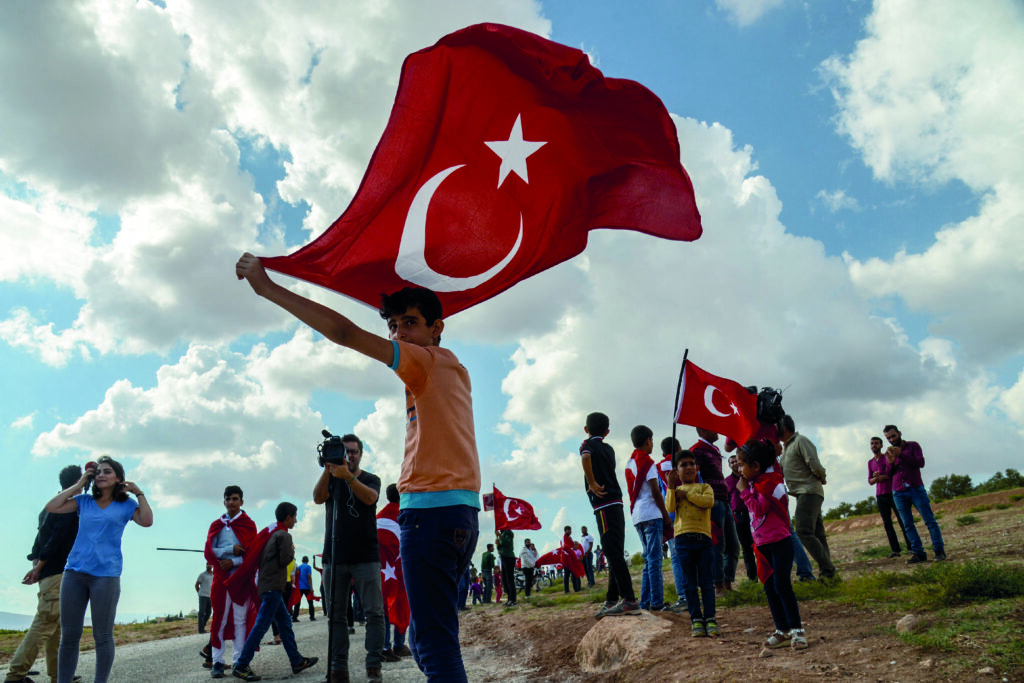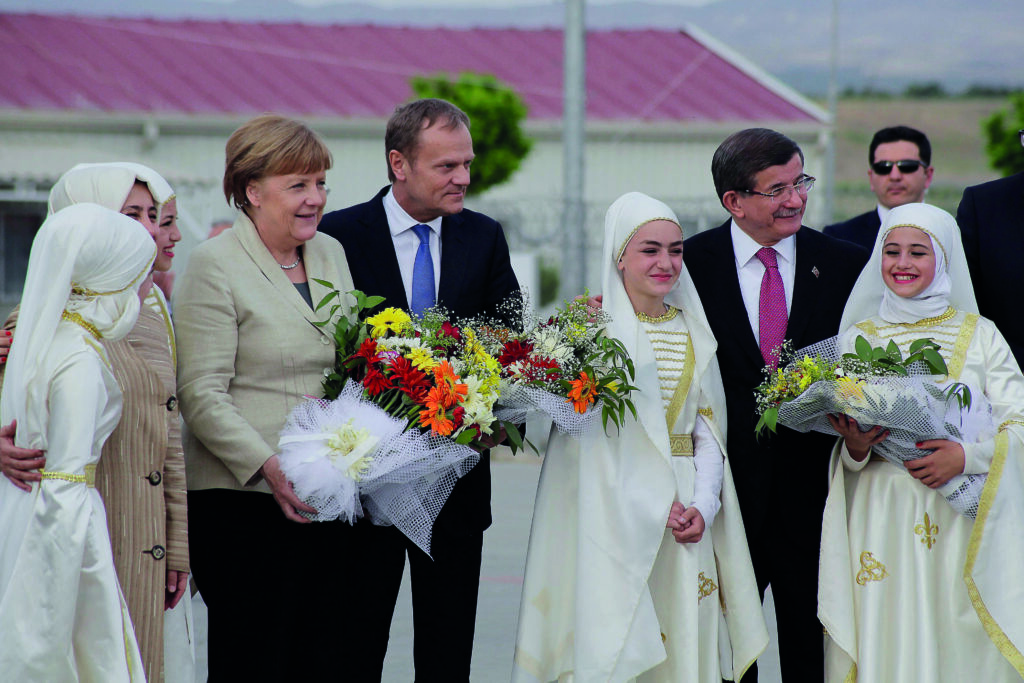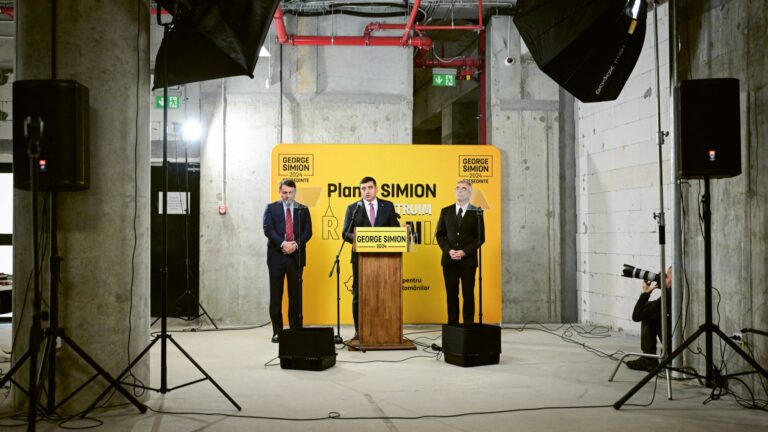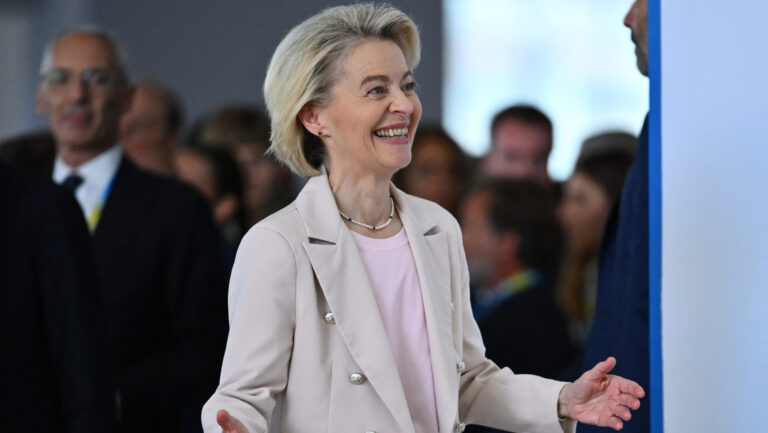This article was published in our print edition’s Special Issue on the European Union.
Introduction
On 18 March 2016, the heads of member states and governments in the EU and Turkey (Türkiye) signed the Agreement on the EU–Turkey Statement regarding the Migration Deal. This agreement came into existence with two specific objectives: to end (or at least to substantially reduce) the massive inflow of irregular migrants arriving from Türkiye, via the Greek islands, into EU member states, and to replace it with an organized, safe, and legal resettlement mechanism in the EU for, in the first instance, Syrian refugees currently residing in Türkiye. In order to successfully carry out these goals, two interdependent measurements were meant to be implemented: all migrants illegally arriving in Greece after 20 March 2016 would be returned to Türkiye after an individual assessment of their asylum claims in line with EU and international law and, for each returned migrant, EU member states would let an asylum-entitled Syrian legally enter the EU directly from Türkiye; this arrangement is known as the ‘1-for-1 mechanism’. In exchange, Türkiye was promised the re-opening of the negotiating chapters for EU accession and an accelerated process of visa liberalization for Turkish nationals, a deepening of the EU–Turkey Customs Union, and the establishment of regular EU–Türkiye summits. Furthermore, Ankara would benefit from 3 billion euros of financial support under the Facility for Refugees in Türkiye, and an additional 3 billion euros would be mobilized before the end of 2018 if the first disbursement had been used in full for the support of Türkiye’s refugee population. In the midst of the refugee crisis, the EU – Turkey Statement became an important element of the EU’s comprehensive approach on migration.1
Türkiye as the Stronger Party in the Agreement
Türkiye emerged as the stronger party from the Agreement on the EU–Turkey Statement regarding the Migration Deal. Türkiye’s ability to extract concessions from the EU relied on its geographical, political, and geopolitical character, which it effectively leveraged as part of its strategy during the negotiations.
Geographical Characteristics
Türkiye’s geographical situation gives it a pivotal role in the EU’s wider strategy of external migration management, in two regards. Firstly, Türkiye is an inevitable station on the Eastern Mediterranean and Western Balkan routes that actively operated between the summer of 2015 and the spring of 2016 as the main routes into Europe for forced migrants and asylum-seekers.2 Türkiye’s importance derives from the fact that it is well placed to control the Turkish–Greek border, as well as to patrol the neighbouring seas and straits to hinder the influx of migrants and block human traffickers. Secondly, Türkiye has become a key bastion of the so-called ‘external border’ of Europe; the EU has been looking for opportunities to strike deals with transit countries, including others such as Libya, to prevent the opening of new sea and land routes into the continent as a result of the closure of others.3 The Turkish role is, therefore, essential, in the sense that it keeps a balance between the various migration routes, ensuring that the pressure does not fall disproportionately on just a few countries.
‘From the perspective of the EU, Türkiye plays a key role in the region for the simple reason that the country aids the expansion of Western values rather than those of the East’
Türkiye’s geographical position gave it leverage in the migration-deal negotiation process. Its role is geographically indispensable in the process of hindering the massive flow of irregular migrants to Europe. Indeed, without Ankara’s efforts, the refugee crisis would have once again become acute, undermining the EU’s strategy of external migration management by shifting the viability of certain migration routes and changing the pressure on countries with external Schengen borders. Moreover, the decision concerning when and how to enable or restrict migrant transit has been a trump card in Ankara’s hand. In essence, Türkiye strategically employed its geographical leverage during the negotiations, by transforming its unique location from an opportunity for a joint solution to a constant threat against the EU.
Political Characteristics
Türkiye has a technical advantage arising from its basic political circumstances in that it can make decisions and act independently in its own name without external interference, whilst the EU functions as a ‘political family’, where member states go through various political, legal, and bureaucratic processes in order to reach a consensus. In this respect, Türkiye could show a coherent political concept and clear requirements for joining the EU, visa liberalization, and financial support, all of which enjoy the broad support of Türkiye’s political class and population. Furthermore, President Recep Tayyip Erdoğan represented an influential partner in the negotiations, not only because of the Turkish standpoint on the migration issue, but because the Erdoğan government4 enjoyed a level of support that was higher than any previous Turkish government, or any EU country at that time.
Türkiye’s political situation also contributed to its strength in the negotiation processes; however, it is important to note that this strength came predominantly from the weak points of the other side. Ankara was aware that the EU’s decision-making and executive processes were slow, but that it needed to fulfil key tasks within extremely short deadlines. Consequently, time was on Türkiye’s side, as it was running out, while the problem was getting ever larger. This is why, even if EU countries could not reach a unified position on solving the migration problem, they had no alternative at the time than to cooperate with Türkiye. In that context, Ankara gained the power to assert its basic attitude that ‘if the EU wants something, it needs to pay for it!’ and this decisively influenced the conditions of the agreement (i.e. by setting shorter deadlines for visa liberalization), as well as to assert further and further claims (i.e. additional financial supports or shared charges) as new gains on the table.5 When the support of European leaders reached a crisis point, President Erdoğan demonstrated his strength in the domain of communication as well, by using a confident and aggressive communicational style toward to the EU, as a tool of narrative manipulation, making its position seem weaker on the international stage.
Geopolitical Characteristics
Türkiye’s geopolitical role in the Middle East is significant as it enjoys a good reputation among new Arab democracies, which follow Ankara as a distributor of Western values and a model of Western democracies. However, Türkiye does not entirely commit to one side or the other, but rather seeks to strengthen its role as a ‘bridge’ between East and West,6 which is an important element in the country’s shuttlecock policy. Ankara struggles to profit from its distinguished position in the region7 and to discover new ways to avoid international isolation in the competition between Washington and Moscow. Regarding the Syrian conflict, Türkiye used to oppose the Assad-regime, but at the same time has cooperated with Russia and Iran inside the country, and issued a joint statement with these powers on their commitment to the independence of a democratic and secular Syria.9
Türkiye’s geo-strategic importance proved to be a significant element during the negotiations, because its unique position has enabled it not only to participate in the symptomatic handling of the refugee crisis, but to influence the regional conflicts that cause mass migration at their source. From the perspective of the EU, Türkiye plays a key role in the region10 for the simple reason that the country aids the expansion of Western values rather than those of the East. This gained even greater importance as at the time, Türkiye was increasingly considered to be Russia’s ‘accomplice’ in the region because of its cooperation in the Syrian conflict. Türkiye’s ability to have a decisive impact on key operations and potential outcomes of the existing conflicts in the region, especially with Russian support in the background, made it necessary for the EU to take Türkiye’s demands seriously, and to seek closer ties with President Erdoğan in any way, in order to diversify and balance Turkish international relations.
The European Union as the Weaker Party of the Agreement
The EU appeared the weaker party in the Agreement on the EU–Türkiye Statement regarding the Migration Deal. However, it could have taken multilateral, pressing, and abstaining approaches that would have improved its negotiating position with Türkiye.
A Multilateral Approach
The bilateral approach of the Agreement on the EU–Turkey Statement regarding the Migration Deal only shifted the problem of the refugee crisis elsewhere, without resolving it,11 by redirecting migrant pressure from the Western Balkan route to other routes; moreover, it enabled Türkiye to put forward its demands and interests during the negotiations, giving a ‘unilateral’ character to the agreement.
The EU could have recognized the need to enter into an alliance also with other transit countries outside of the EU, giving a multilateral approach to the agreements. It would have played a pivotal role not only with regard to the main goal of the external migration management strategy, but also during negotiations with Türkiye.
Through more bilateral agreements, the management of the refugee crisis would have involved more origin, transit, or first destination countries outside the EU (such as Libya or Jordan), as part of a wider international effort to maximize the benefits and minimize the human and economic costs of global migration. It would have been in the interests of Ankara to stay in the agreement at any price because, were it to renege, it would become isolated and reputationally tarnished in international politics; secondly, it would lose all the political, diplomatic, and economic investments that this transnational project would have provided for the other participants.12 Furthermore, cooperating with more countries could have decreased the accentuated and central role of Türkiye in the key tasks. As such, Türkiye would have had less leverage to set the terms of the negotiation. Assuming that the EU would have granted similar levels of support to all the parties involved, these further negotiations would have given additional reference points for Türkiye, which would have had to limit its demands.
Also, from the point of view of the EU, a multilateral approach would have been advantageous with regard to communication during the mediation processes, as it would have reduced the internal tensions and contributed to building a unified standpoint. Indeed, the external management of migration through bilateral agreements would have been supported by the opponents of migration quotas, too. It would have spread the burden from the countries at the Schengen border and would have prevented the situation from depending on only one country.
A Pressing Approach
The EU is a key partner in Turkish economic relationships, in terms of trade and foreign direct investment. Furthermore, during the last two decades, the EU–Tukey Customs Union has significantly shaped the Turkish economy.
The EU could have applied pressure from an economic perspective, relying on the asymmetric economic partnership between the two sides. The EU has a decisive superiority over Türkiye in the economic field, and both parties are aware of the fact that the performance of the Turkish economy directly depends on the EU’s economic policy.13 It is obvious that it would not have been in the interest of the EU to destabilize Türkiye, but these pressures could have worked as a bargaining tool to credibly counterweight the bargaining chip in Ankara’s hands, arising from its geographical advantages, and to lead the negotiations towards a more balanced outcome.14
The EU could have driven a hard bargain by suggesting that commercial interactions with Türkiye might be negatively impacted. Such restrictions would have had a significant negative effect on the Turkish economy, as EU countries represent Türkiye’s most significant trading partners in goods, being at the top of the list of Türkiye’s import origins and export destinations.15 In times of economic difficulty, Ankara could not easily have ignored the threat of reduced financial support either. Indeed, two thirds of foreign, direct investments flowing into Türkiye originated from the EU,16 with additional EU financial assistance (including that provided for refugees in Türkiye and for preparation for EU membership). These are all key features of the emerging Turkish economy. The modernization of the EU–Turkey Customs Union is of fundamental importance in the future development of the country; however, it would have been an inconvenience for Türkiye if the agreement regarding the customs union had unilaterally included conditions that are easy for the EU to fulfil, but which would have been a challenge for Türkiye.

An Abstaining Approach
The opening of new EU-accession and visa-free EU travel negotiating chapters constituted ones of the main commitments of the EU in the Agreement on the EU–Turkey Statement regarding the Migration Deal. However, there are already principles and existing conditions that must be fulfilled, and they cannot be changed simply.
The EU should have compartmentalized the enlargement processes away from the migration agreement because Türkiye’s EU accession and visa-free travel are topics independent of the successful management of the refugee crisis—even if Türkiye were to fulfil some of the tasks in line with EU standards. As such, the EU should have abstained from making promises that had conditions determined outside of the current agreement.
‘The bilateral approach of the Agreement on the EU–Turkey Statement regarding the Migration Deal only shifted the problem of the refugee crisis elsewhere, without resolving it’
Türkiye used the migration agreement as a tool, in order to assert its interests in other political questions. The EU held out a carrot, in the form of the commitment to open negotiating chapters concerning EU accession and visa-free travel of Turkish citizens in the EU, since few European countries would agree to offer EU membership to a country with political, legal, and cultural values that are so different from those of Europe, independent of the results of the migration agreement. As such, this strategy led the opposite side to feel mistrustful and entitled to manipulate the narrative with a harsh communicational style that only served to undermine the EU’s image17 and make its view weaker on the national as well as the international stage. Last but not least, the EU needlessly put the success of the agreement at stake by inciting Türkiye to withdraw from it because of unfulfilled promises. By contrast, if the EU had applied the strategy of abstaining from the process of admitting Türkiye into the EU that would have contributed to improved positions, to clearer requirements on both sides of the negotiations, and to more focused targets that would have encouraged attempts to find a collective solution to the problem.
Lessons
‘Don’t put all your eggs in one basket’
The opening of negotiating chapters in relation to Türkiye’s EU-accession and visa liberalization constituted the key basis for the negotiation of the migration agreement between the EU and Türkiye, even if the fulfilment of these conditions did not depend on how the management of the refugee crisis was going. Moreover, both parties involved were aware of the fact that there was no real intent behind these commitments; thus, there was no impetus to integrate them into the agreement.
The mixing of two political issues of significant importance led to a loss of coherence in the agreement. Its fundamental objective was to prevent unchecked migration into the EU, and included elements that would have served the interests of both parties. Primarily, it would have resulted in a massive reduction in the number of irregular refugees arriving in Greece and, at the same time, Türkiye could have benefitted from financial support and shared costs deriving from its being a transit country. However, these common interests split when the EU provided ground in the negotiations for Türkiye’s requirements concerning its EU accession and visa-free travel. Hence, the focus of the agreement was lost, since these matters were so significant in Türkiye’s foreign policy that they took priority over migration management, becoming the new goals of the agreement from its perspective.
The inclusion of enlargement and visa liberalization processes were the main source of conflict between the two parties during the negotiations. Indeed, Ankara felt entitled to use an aggressive style of communication when it realized it had not benefitted from the agreement to the extent it had wished, and the EU had promised it would, as the necessary negotiations were yet to be launched. Thus, the EU enabled Türkiye to negatively influence the image of the EU on the international stage, as well as among Turkish citizens living in the EU.
By putting all the potential gains on the table at the same time, the EU put the success of the agreement at stake, as the unfulfilled promises merely put more bargaining chips in Türkiye’s hands. Ankara could therefore not only set conditions during the negotiations, but threaten to renege on the agreement, which still served the ultimate goal of the EU, and to which there was no other legal or infrastructural alternative at that time. By contrast, instead of dangling carrots, the Union could have profited from Türkiye’s lack of reliable partners by setting up robust conditions and ties that would have included measurable milestones in their strategic partnership.18

‘Culture eats strategy for breakfast’
The EU could not present a unified front in its negotiations with Türkiye, due to the fundamental fact that the EU is comprised of various nations, and, simultaneously, of various cultures that, obviously, should have found consensus before tackling these issues with another party. However, the member states, with diverse historical experiences, legal systems, and social habits, envisioned different solutions to the migration problem.
Cultural differences always reflect diversity and contradictions, even between internal parties because cultural factors decisively determine how a nation thinks about crisis situations and approaches solving them. There are no laws or transnational politics that can overcome these differences, which leads to difficulties in finding effectively mediated outcomes.19 That is the main source of the EU’s problem during the negotiations; namely, internal cultural disagreements overrode the desired strategy of the EU (Brussels), leading to a weaker position vis-à-vis Türkiye, giving Türkiye a greater sense of confidence.
It is important to note, however, that there were two possible EU strategies for the management of the refugee crisis. The first was the refugee quota scheme, in which the EU would cope with the influx of migrants from inside its territory, and which was rejected by some European leaders. The second aimed to handle migration externally, through bilateral agreements with Türkiye and, later, with other African countries. This enjoyed significant support from all member states. In respect of the latter, the EU could at least have made a pretence of being unified.
The EU could not come out of the negotiations as the stronger party because the member states could not speak with a single voice, given the major tensions that prevailed among European politicians and the wider population. Ankara was able to exploit this opportunity to aggravate the situation even further, through words and actions aimed directly at EU states. Türkiye knew that it could open new confrontations within European countries by throwing the question of EU accession and visa liberalization into the negotiations, as many of the member states do not support Türkiye’s EU accession. As a result, Türkiye carried out a policy based on the tactics of ‘divide and rule’, which the EU should have resisted, but to which it instead fell victim.
‘Losses hurt much more than gains’
Despite the frustrations expressed in the communications of both sides, neither the EU nor Türkiye took real action to withdraw from the Agreement on the EU–Turkey Statement regarding the Migration Deal. The reason is that there was still some benefit in the continuation of the agreement, and at the same time, its full collapse would have led to mutual and much greater losses than the potential gains from withdrawing.20
The EU still had no better option in its handling of the refugee crisis than to involve Türkiye in the management processes through a bilateral agreement that makes Türkiye part of an external buffer zone. If the EU had backed out of the bargain, it would have faced a renewed, massive influx of irregular migrants arriving along the Western Balkan route, which it was not ready to deal with, since neither the necessary infrastructure nor the legal mechanisms for dealing with this were in place. Furthermore, the EU had no interest in politically moving away from Türkiye, which was deepening its relationships with Russia in connection with its regional politics in the Middle East, and economically, in the energy sector.
As far as Türkiye is concerned, withdrawing from the agreement would have meant the loss of the EU’s promised financial support of 3+3 billion euros, which were significant incentives, especially given that Ankara would probably have taken the necessary measures to control the migration flow in any case, in its own interests. Under the existing circumstances, however, it could share the financial and humanitarian costs. Additionally, by abandoning the agreement, Türkiye would have risked facing economic reactions from the EU that would have had drastic consequences on the development of the Turkish economy. Finally, there was no obvious reason to withdraw from the agreement, since that would have meant the loss of Türkiye’s only bargaining chip with which to make progress on EU accession and the visa-free travel of Turkish nationals to the EU.
Conclusion
The Agreement on the EU–Türkiye Statement regarding the Migration Deal is considered a turning point in EU–Türkiye relations, as it divided opinions on whether it had been worth entering into an alliance with the other party at such a price. However, its strategic importance was intended to be significant, especially given the decline of the rules-based alternatives—see the EU–Turkey Customs Union—and the Agreement has remained a significant pillar of the strategic relationship between the EU and Türkiye.21
NOTES
1 European Council, ‘EU–Turkey Statement, 18 March 2016’, www.consilium.europa.eu/en/press/press-releases/2016/03/18/eu-turkey-statement/, accessed 4 November 2023.
2 ‘Migrant Crisis: Migration to Europe Explained in Seven Charts’, BBC.com (4 March 2016), www.bbc.com/news/world-europe-34131911, accessed 13 December 2023.
3 Urs Freuhauf, ‘EU–Libya Agreements on Refugees and Asylum Seekers’, Heinrich Böll Stiftung (n.d.), 270–274, https://ps.boell.org/sites/default/files/downloads/Perspectives_02-37_Urs_Fruehauf2.pdf, accessed 10 January 2023.
4 Alexander Sotnichenko, ‘Four Big Reasons Why Turkey’s Coup D’état Failed’, Russia Direct (2016), www.russia-direct.org/opinion/four-big-reasons-why-turkeys-coup-detat-failed, accessed 23 December 2023.
5 Zoltán Egeresi, ‘Ki mit nyert? Több mint egy évvel a menekültügyi megállapodás’ után’, (Who Won What? More than a Year after the Refugee ‘Settlement’), Ludovika.hu (2017), 41, http://archiv.netk.uni-nke.hu/uploads/media_items/svkk-elemzesek-2017-13-ki-mit-nyert-egy-evvel-a-menekultugyi-megallapodas-utan-egeresi-z.original.pdf, accessed 11 November 2023.
6 Tamás Szigetvári, ‘EU–Turkey Relations: Changing Approaches’, Romanian Journal of European Affairs, 14/1 (2014), 34–48, https://papers.ssrn.com/sol3/papers.cfm?abstract_id=2406851, accessed 29 December 2023.
7 Diana Aschner et al., History & Culture of Turkey: From Anatolian Civilization to Modern Republic (Pittsburgh: Chatham University, 2009), 16, www.chatham.edu/academics/globalfocus/archives/turkey_1011/_pdf/history_culture.pdf, accessed 12 December 2023.
8 Péter Kövecsi-Oláh, ‘Az EU–török megállapodásról: mi történik jelenleg Törökországban a menekültek tömegeivel?’ (On the EU–Turkish Settlement: What Is Happening in Türkiye Now with the Refugee Masses?), Migrációkutató Intézet (5 October 2017), www.migraciokutato.hu/hu/2017/10/05/az-eu-torok-megallapodasrol-mi-tortenik-jelenleg-torokorszagban-a-menekultek-tomegeivel/, accessed 11 December 2023.
9 ‘Türkiye’nin Suriye politikası Moskova’da çöktü… Birinci maddeye dikkat!’, Cumhuriyet (2016), www.cumhuriyet.com.tr/haber/dunya/648479/Turkiye_nin_Suriye_politikasi_Moskova_da_coktu…_Birinci_maddeye_dikkat_.html, accessed 11 December 2023.
10 Marc Pierini, ‘Turkey’s Domestically Driven Foreign Policy,’ Carnegie Europe (27 February 2017), http://carnegieeurope.eu/strategiceurope/68109, accessed 29 December 2023.
11 Elizabeth Collett, ‘The Paradox of the EU–Turkey Refugee Deal’, Migration Policy Institute (March 2016), www.migrationpolicy.org/news/paradox-eu-turkey-refugee-deal, accessed 3 January 2024.
12 Victoria Metcalfe-Hough, ‘The Migration Crisis? Facts, Challenges and Possible Solutions’, Overseas Development Institute (2015), www.odi.org/sites/odi.org.uk/files/odi-assets/publications-opinion-files/9913. pdf, accessed 16 December 2023.
13 Marc Pierini, ‘Europe’s Policy Options on Turkey, Carnegie Europe (27 September 2017), http://carnegieeurope.eu/strategiceurope/?fa=73228, accessed 5 January 2024.
14 ‘No Update to Turkey–EU Customs Deal for Now: German Chancellor Merkel’, Hürriyet Daily News (17 August 2017), www.hurriyetdailynews.com/no-update-to-turkey-eu-customs-deal-for-now-german-chancellor-merkel-116833, accessed 2 January 2024.
15 OEC, ‘Turkey’, (2016), https://atlas.media.mit.edu/en/profile/country/tur/, accessed 31 December 2023.
16 Republic of Turkey Ministry of Foreign Affairs, ‘Turkey–EU Relations’, mfa.gov.tr (2016), www.mfa.gov.tr/relations-between-turkey-and-the-european-union.en.mfa, accessed 8 January 2024.
17 Marc Pierini, ‘Europe’s Policy Options on Turkey’, Carnegie Europe (27 September 2017), http://carnegieeurope.eu/strategiceurope/?fa=73228, accessed 30 December 2023.
18 Fadi Hakura, ‘The EU-Turkey Refugee Deal Solves Little’, Chatham House (23 March 2016), www.chathamhouse.org/publications/twt/eu-turkey-refugee-deal-solves-little, accessed 16 December 2023.
19 Jacob Bercovitch and Ole Elgström, ‘Culture and International Mediation: Exploring Theoretical and Empirical Linkages’, International Negotiation, 6/1 (2001), 3–23, doi: 10.1163/15718060120848937.
20 Lesley Dudden and Kadir Ustun, ‘EU–Turkey Refugee Agreement: Too Big to Fail’, SETA (5 June 2017), 34, http://setadc.org/eu-turkey-refugee-agreement-too-big-to-fail/, accessed 22 December 2023.
21 Marc Pierini, ‘Four Steps to an EU–Turkey Reset’, Carnegie Europe (29 June 2017), http://carnegieeurope.eu/2017/06/29/four-steps-to-eu-turkey-reset-pub-71389, accessed 17 December 2023.








